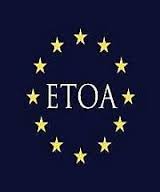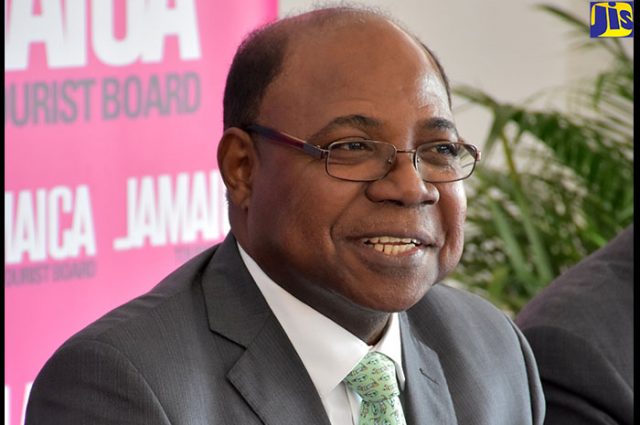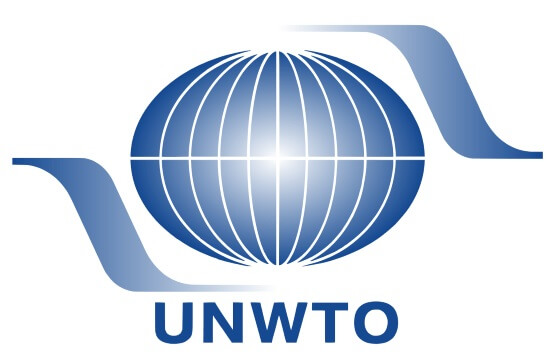
UNWTO Secretary General Election: How it works?
The United Nations World Tourism Organization (UNWTO) generates market knowledge, promotes competitive and sustainable tourism policies and instruments, fosters tourism education and training, and works to make tourism an effective tool for development through technical assistance projects in over 100 countries around the world. The organization is based in Madrid, Spain.
UNWTO’s membership includes 157 countries, 6 territories and over 500 affiliate members representing the private sector, educational institutions, tourism associations and local tourism authorities. Its headquarters are located in Madrid.
UNWTO is not complete and struggles to speak for the entire world when it comes to travel and tourism issues. Surprisingly non-members are: Antigua and Barbuda, Barbados, Belgium, Belize, Comoros, Denmark, Dominica, Estonia, Finland, Grenada, Guyana, Iceland, Ireland, Kiribati, Latvia, Liechtenstein, Luxembourg, Marshall Islands, Micronesia, Nauru, New Zealand, Palau, Saint Kitts and Nevis, Saint Lucia, Saint Vincent and the Grenadines, Samoa, Singapore, Solomon Islands, Somalia, South Sudan, Suriname, Sweden, Tonga, Tuvalu, United Arab Emirates, United Kingdom, United States of America.
Any new Secretary General has to make it his or her priority to push non-members to become members and join the international United Nations community of tourism destinations.
“The Secretary-General shall be appointed by a two-thirds majority of Full Members present and voting in the Assembly, on the recommendation of the Council, for a term of four years. His appointment shall be renewable.”
The term of office of the current Secretary-General Taleb Rifai expires on 31 December 2017. It is therefore incumbent on the General Assembly to appoint a Secretary-General for the period 2018-2021 at its twenty-second session due to be held in Chengdu, China, in September/October 2017.
Consequently, in accordance with Article 22 of the Statutes and with Rule 29 of the Rules of Procedure of the Executive Council, the Executive Council will be required at its 105th session (11-12 May 2017 to recommend a nominee to the General Assembly.
For purposes of this nomination, it is proposed that the established practice be followed and, more particularly, that the rules adopted by the Council for the selection of a nominee for the post of Secretary-General at its twenty-third session in May 1984 be observed.
5. The above-mentioned rules, which have been consistently applied for the nomination for the post of Secretary-General since 1992, provide that:
“(a) only nationals of States Members of WTO may be candidates;
“(b) candidates shall be formally proposed to the Council, through the Secretariat, by the governments of the States of which they are nationals, and these proposals should be received not later than (date to be determined1 ), the postmark providing proof thereof;
“(c) voting shall be conducted by secret ballot in accordance with the Guiding Principles for the Conduct of Elections by Secret Ballot attached to the Rules of Procedure of the General Assembly;
“(d) the vote shall be decided in accordance with Article 30 of the Statutes and Rule 28 of the Council’s Rules of Procedure, by simple majority, defined as fifty
“(d) the vote shall be decided in accordance with Article 30 of the Statutes and Rule 28 of the Council’s Rules of Procedure, by simple majority, defined as fifty per cent plus one of the valid ballots cast; “
“(e) the selection of one nominee by the Council shall be conducted, in accordance with Rule 29 of the Council’s Rules of Procedure, during a private meeting, part of which shall be a restrictive meeting, as follows:
“(i) discussion of candidates shall be conducted during a restrictive private meeting at which only voting delegations and interpreters shall be present; there shall be no written record and no tape recording of the discussions;
“(ii) during the balloting Secretariat staff necessary to assist with the voting shall be admitted;
“(f) the Executive Council decides not to recommend a candidate proposed by the government of a member State in unjustified arrears (paragraph 12 of the Financing Rules attached to the Statutes); “(g) the Council shall select only one nominee to recommend to the Assembly.”
“(g) the Council shall select only one nominee to recommend to the Assembly.”
“(i) discussion of candidates shall be conducted during a restrictive private meeting at which only voting delegations and interpreters shall be present; there shall be no written record and no tape recording of the discussions;
“(ii) during the balloting Secretariat staff necessary to assist with the voting shall be admitted; “(f) the Executive Council decides not to recommend a candidate proposed by the government of a member State in unjustified arrears (paragraph 12 of the Financing Rules attached to the Statutes); “(g) the Council shall select only one nominee to recommend to the Assembly.”
In addition, the procedure established for the receipt of nominations that has been applied since 1992 provides the following with respect to the presentation of the nominations: “each nomination should be accompanied by a curriculum vitae and a statement of policy and management intent, expressing the nominee’s views on the manner in which he or she would perform the functions of Secretary-General. These particulars will be compiled in the form of a Council document and communicated to its Members within the prescribed time-limits. “In the interest of maintaining equality between the nominees and to ensure that their documents are readable, it is suggested that curricula vitae be confined to, say, two pages and statements of policy and management intent to six pages. The nominations will be presented in alphabetic order in the Council document.”
Since 1992, the time-limit set for the receipt of candidatures (to which the corresponding government supports, curricula vitae and statements of intent must be actually attached) has been established at two months before the session at which the Executive Council is required to select a nominee. The Secretariat consequently informs all the Members by note verbale of the receipt of each nomination.
Since 1997, the nominees for election to the post of Secretary-General have made an oral presentation of their candidature and intentions during the Council’s nominating session. Called in the Spanish alphabetical order of their surnames, the nominees are allotted equal time for making their presentations which are not followed by discussions.
In accordance with Rule 29(3) of the Rules of Procedure of the Executive Council, the recommendation to the Assembly of a nominee for appointment to the post of Secretary-General: “shall be made by a simple majority of the Members of the Council present and voting
If no candidate receives the majority in the first ballot, a second and, if necessary subsequent ballots shall be held to decide between the two candidates receiving the largest number of votes.”
In accordance with the constant practice of the Organization, recalled in decision 17 of 1984, a simple majority is “defined as 50 per cent plus one of the valid ballots cast”.
This rule was confirmed in 1988 and 1992 (decisions 19(XXXIV) and 19(XLIV)). In the event of an odd number, it seems in conformity with logic, with the ordinary meaning of words and with the dominant practice, to define it rather as representing the number of votes immediately higher than half of the votes validly cast3 .
As for the procedures of the “second” and “subsequent ballot” mentioned in Rule 29, should they prove necessary, the clarifications provided by the Legal Adviser in the Information Document for the Election of the Secretary-General in 1989 and confirmed in 2008 would apply in the event that two candidates should share the second place in the first ballot.
The consequence would be that another ballot (and as many additional as necessary for achieving the required majority) would be organized between the three candidates to decide which two candidates, having received the greatest number of votes, will subsequently participate in the final ballot. 12. Representation of a State by another Full Member of the Organization during the election of the nominee will follow the resolutions adopted by the General Assembly at its 19th session in the Republic of Korea in 2011 (resolution 591(XIX)), at its 20th session in Zambia/Zimbabwe in 2013 (resolution 633(XX)) and at its 21st session in Colombia in 2015 (resolution 649(XXI)). 13.
It is recalled that Members to which Article 34 of the Statutes and paragraph 13 of the Financing Rules attached to the Statutes are being applied at the time of the election are deprived of membership privileges in the form of services and the right to vote in the Assembly and the Council unless they have been granted a temporary exemption from the application of such provisions by the Assembly.
The procedure stated in this document has been put into practice successfully, and without giving rise to any particular difficulty, for the appointments carried out since 1992. 15. In line with the recommendations by the Joint Inspection Unit of the United Nations (JIU) relating to the selection and conditions of service of Executive Heads in the United Nations System Organizations (JIU/REP/2009/8), each applicant is requested to attach a certificate of good health signed by a recognized medical facility to the presentation of her/his candidature.
The Executive Council is invited: (a) To decide that the rules adopted by the Council for the selection of a nominee for the post of Secretary-General at its twenty-third session in May 1984 (decision 17(XXIII)), supplemented by those adopted at its thirty-fourth session in November 1988 (decision 19(XXXIV)), and at its fortyfourth session in November 1992 (decision 19(XLIV)) shall also be observed at its 105th session; (b) To confirm that, for the interpretation of the statutory rules governing the election of the Secretary-General and the decisions mentioned in subparagraph (a) above, reference shall be made to the contents of this document; (c) To invite the Member States to propose candidates for the post of Secretary-General for the period 2018-2021, ensuring that their nominations reach the Organization’s Headquarters (Capitán Haya 42, 28020 Madrid, Spain) two months before the inauguration of the 105th session of the Executive Council, i.e., by 24:00 hours Madrid time, 11 March 2017 (date to be confirmed), at the latest; (d) To request candidates to submit, together with biographical and career information, a statement of policy and management intent, expressing their views on the manner in which they would perform the functions of Secretary-General; and (e) To confirm that the 105th session of the Executive Council will select the nominee it should recommend to the twenty-second session of the General Assembly for the post of SecretaryGeneral of the Organization for the period 2018-2021.




